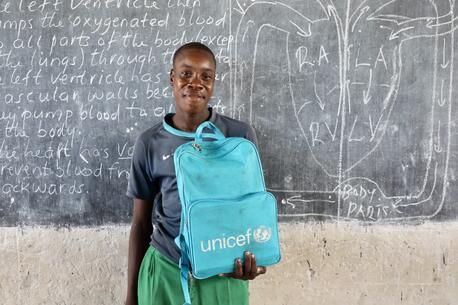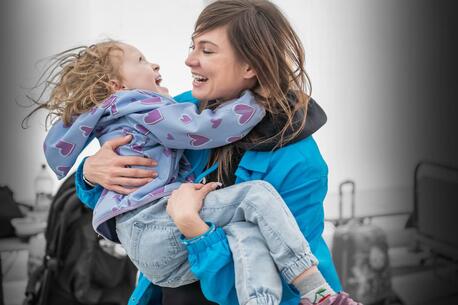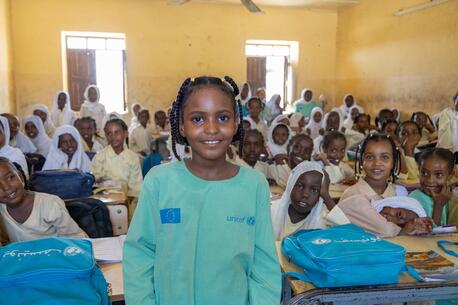
A Chance to Dream Again in Syria
Programs delivered by UNICEF with funding from Education Cannot Wait are providing early childhood education for girls and boys impacted by Syria's devastating decade-long conflict.
Early childhood learning centers are a haven for young children displaced by war in Syria
This is a story about the indomitable spirit of the girls and boys of Syria. They have lost their homes and loved ones in the conflict that now stretches on into its twelfth year. They have seen killings, maiming, abduction, forced recruitment into armed groups and other grave violations of their human rights. They have felt hunger, fear and terror.
And yet, they find hope, joy and connection through new supports that are helping them return to the safety of the classroom.
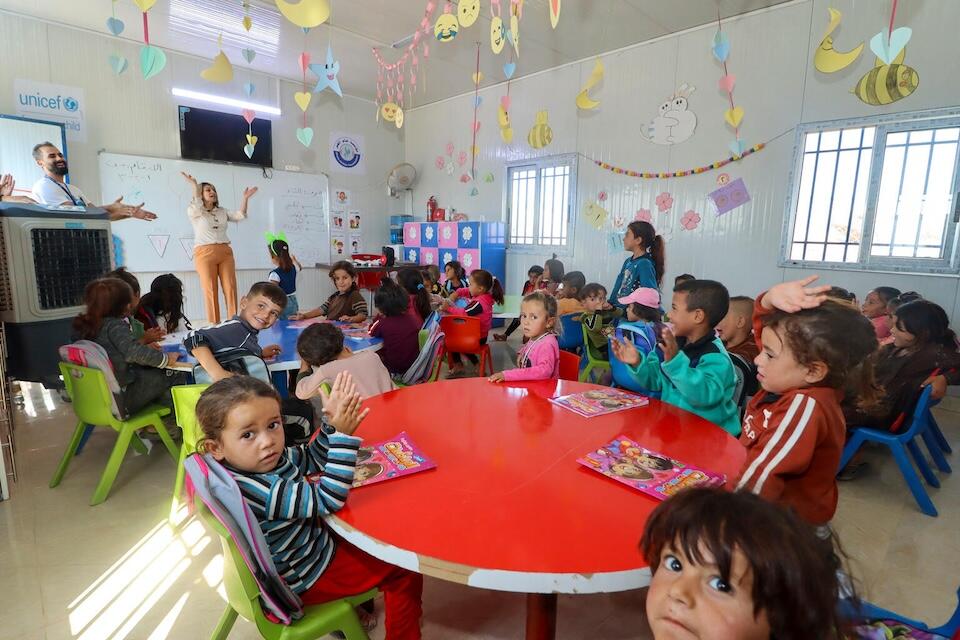
A school called 'Dream'
Since 2014, more than 5,000 people have taken shelter in the Ain Alkhadra camp in northeast Syria. Many of the families living here have been displaced multiple times during the protracted crisis, and even in the protection of the camp, they live under the most basic of conditions.
To provide new hope for the girls and boys of the camp, UNICEF established a learning center that provides early childhood education for children between the ages of 3 and 5. The students now receive 10 sessions a week, with classes in math, English, Arabic, drawing and art along with recreational activities designed to help the children learn — and grow — though play.
The activities at the school – auspiciously named “Dream” in Arabic – are funded in part by Education Cannot Wait (ECW), the global fund for education in emergencies and protracted crises, hosted by UNICEF.
“We provide children with entertaining and educational activities at the same time," says Sherin, one of the teachers at the school. "We use cubes, colors, balls and cards. To encourage the students to interact, I first explain new ideas on the whiteboard. Then, we read about them together from the book and finally, we sing or draw about them. Some children did not know how to hold a pen when we started and I tried to help them with that to begin with.”
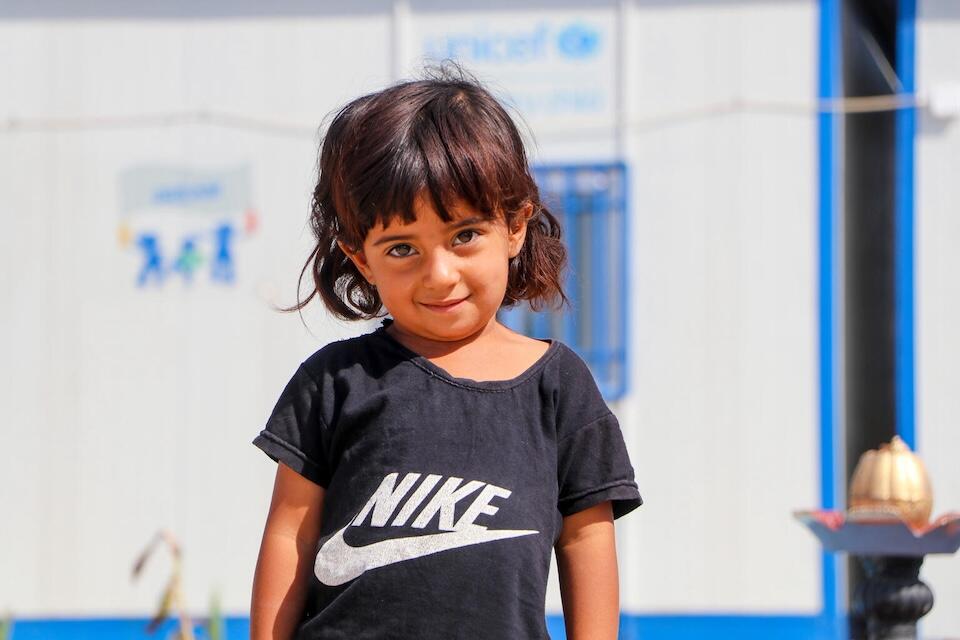
Every child deserves the best possible start in life
For children like 3-year-old Sahar, this is a chance to dream again. “Drawing and coloring are my favorite activities,” she says.
For her mother, Zalkha, the learning center is a chance to break the cycle of illiteracy and inequality forever.
We didn’t learn but our children should. I don’t even know how to write my name. They must learn how to read and write. Education is good for the children's future. — Zalkha, mother of two in northeast Syria
“We didn’t learn but our children should. I don’t even know how to write my name. They must learn how to read and write," says Zalkha. "Education is good for the children’s future. If they start learning at a young age, it will help increase their awareness. Before coming here, my daughter used to spend all her time at our tent, but now she loves learning here. Whenever she’s sick, she cries asking about school."
Sahar's classmate Muhannad has an infectious smile and a resilient spirit. His mother, Amina, never learned to read, but she enrolled him at the school to give her son a better chance in life. “He comes home happy and tells me about what he has learned at school. It’s important that he learns at an early age. It will help him grow up being more aware and equipped with knowledge,” says Amina.
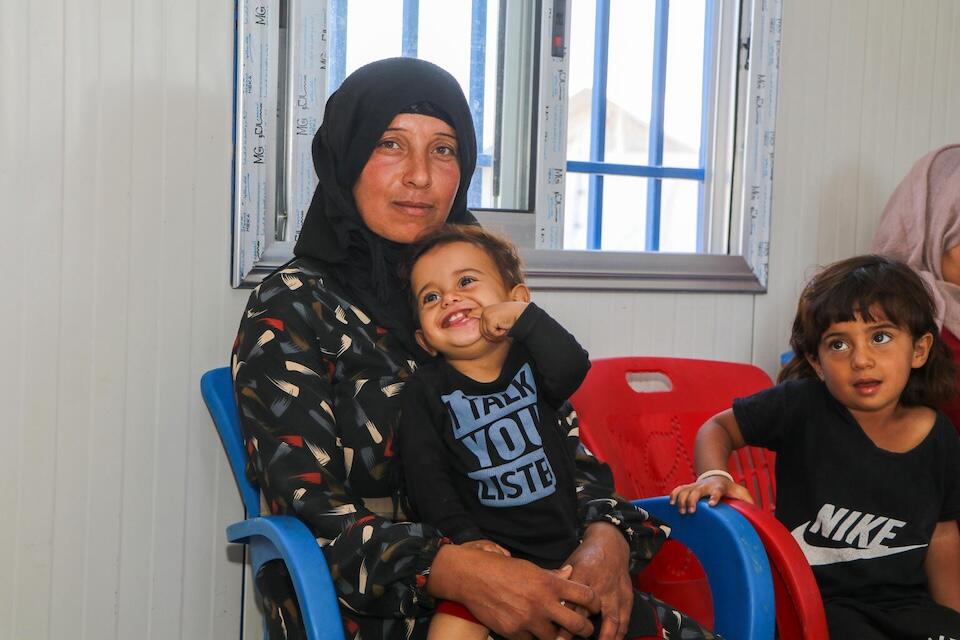
Early childhood education provides children with the foundation for a lifetime of learning
Early childhood education is essential in delivering on the Sustainable Development Goals and building a more peaceful, more prosperous future.
According to UNICEF, children enrolled in at least one year of pre-primary education are more likely to develop the critical skills they need to succeed in school and less likely to repeat grades or drop out. This also sets them up for success in high school and in the workplace. Some studies even indicate a correlation between early childhood education and a drop in violent crime.
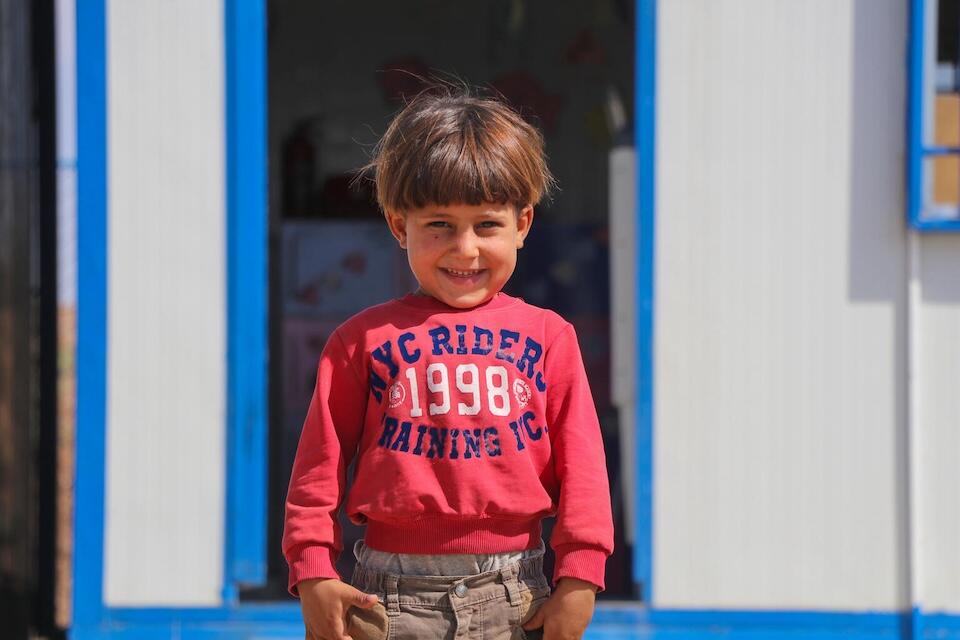
Since 2018, funding from Education Cannot Wait has reached more than 400,000 children in Syria with quality education supports
“These children have been through many hardships, and we use entertaining activities to teach them basics like the alphabet and numbers. Preschool education is necessary for children not only to learn, but also to explore how to interact with other children and people outside of the family circle,” says Aida, one of the teachers at the “Dream” learning center.
Since 2018, Education Cannot Wait has provided more than $57 million in funding in Syria, including a $7 million response to the deadly earthquake that rocked the region in 2023. The grants have been delivered by a broad consortium of partners, including UNICEF and the Norwegian Refugee Council.
The investments have already reached over 400,000 children with quality education supports. Individual learning materials have been distributed to over 140,000 children, nearly 5,000 teachers have received financial support and new classrooms, like the “Dream” school, are being built and rehabilitated. As the world looks to build back better from the COVID-19 pandemic, more than 900,000 girls and boys have benefited from ECW’s fast-acting COVID-19 response in Syria alone.
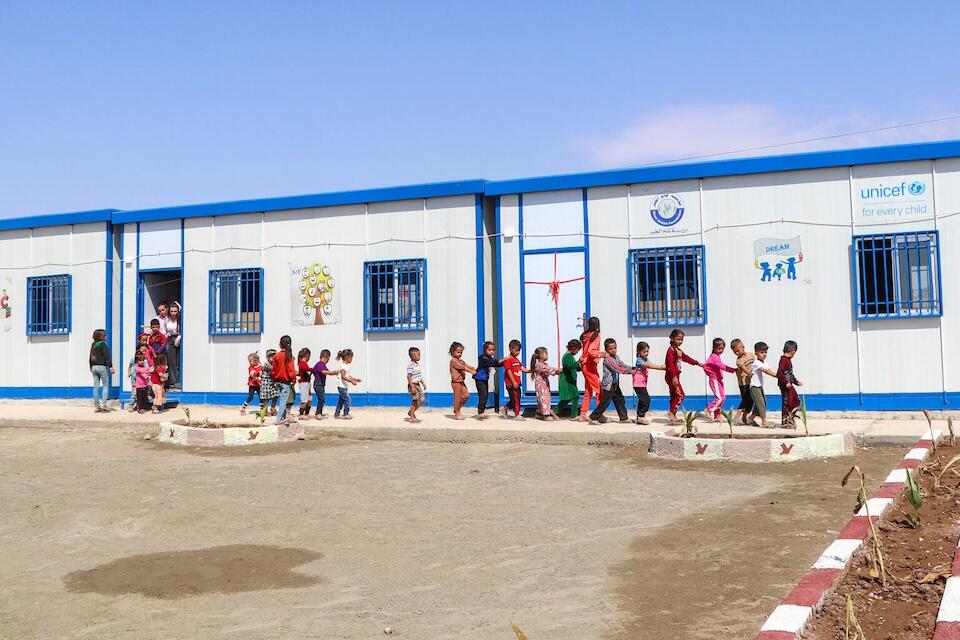
A special focus on addressing impacts of the climate crisis on children's education
The climate crisis is also an education crisis, especially for children impacted by conflicts in places like Syria.
The climate crisis threatens the rights of every person on the planet, but for children impacted by armed conflict, forced displacement and other protracted crises in countries like Syria, the needs are even more dire. There are 224 million crisis-affected children worldwide who urgently need education support. According to Education Cannot Wait’s Right Here, Right Now climate appeal, about one-third — 62 million — have been impacted by climate hazards such as droughts, floods, cyclones and other extreme weather events since 2020.
“Human-induced climate change was and continues to be a major factor in the longevity of the Syrian conflict, stemming from extreme drought in the region which contributed to large-scale migration and displacement, and aggravating the already unstable socio-economic conditions and increasing risks of civil strife,” according to MedGlobal.
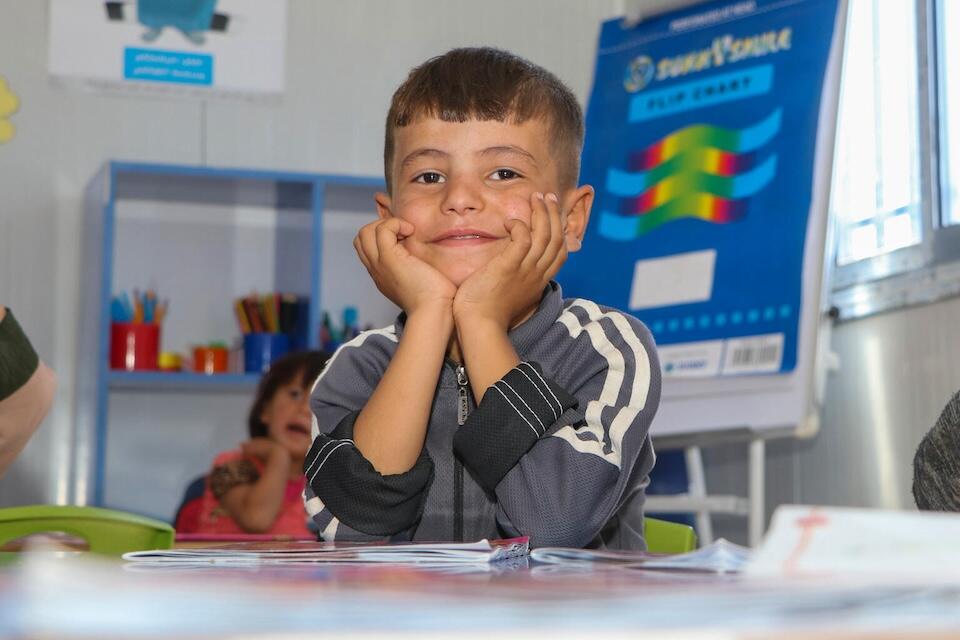
Sustainability measures include winterizing school buildings and integrating climate change into school curriculums
The multi-year drought in Syria has led to spikes in the costs for water, food and energy, and continues to impact the lives and livelihoods of tens of millions of people across the region.
ECW partners in Syria are applying sustainability policies to winterize schools and integrating climate change into the curriculum delivered by teachers.
ECW is calling on world leaders to stand up for the children of Syria in the midst of these multiplying challenges to provide $1.5 billion in funding over the next three years, including $150 million targeted towards the climate crisis.
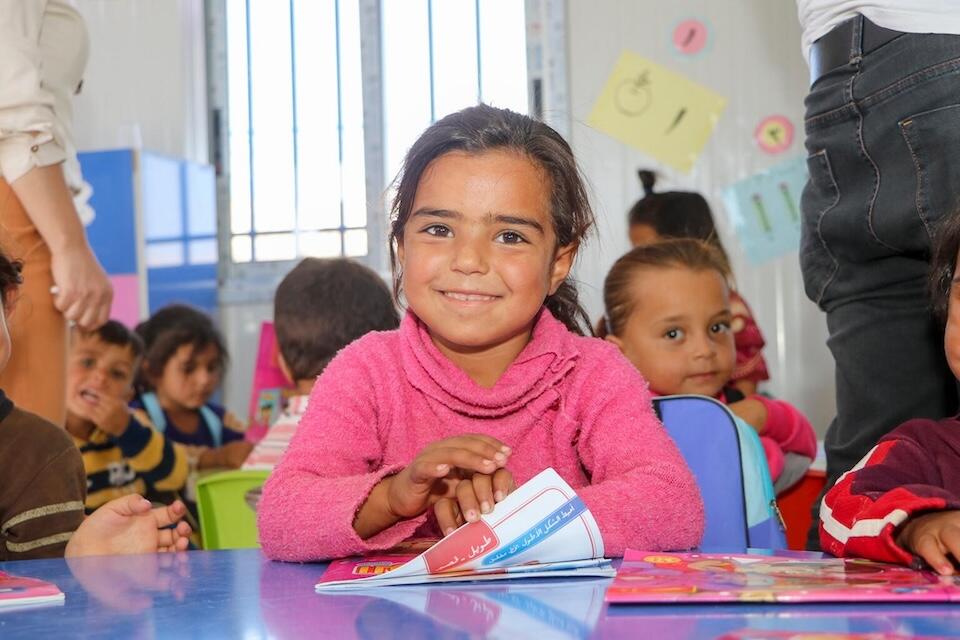
Education opens doors to a more peaceful future
“The very future of humanity is at stake. Rising seas, spiking temperatures and ever-more-severe droughts, floods and natural hazards are derailing development gains and ripping our world apart,” said Yasmine Sherif, Executive Director of Education Cannot Wait.
For girls and boys like Sahar and Muhannad, education is a chance to break the cycle of conflict, displacement, poverty and hunger forever. It’s a change to embrace the dream and hope of sustainability, resilience and a pathway toward a more peaceful future.
UNICEF supports every child’s right to an education. Please donate.
HOW TO HELP
There are many ways to make a difference
War, famine, poverty, natural disasters — threats to the world's children keep coming. But UNICEF won't stop working to keep children healthy and safe.
UNICEF works in over 190 countries and territories — more places than any other children's organization. UNICEF has the world's largest humanitarian warehouse and, when disaster strikes, can get supplies almost anywhere within 72 hours. Constantly innovating, always advocating for a better world for children, UNICEF works to ensure that every child can grow up healthy, educated, protected and respected.
Would you like to help give all children the opportunity to reach their full potential? There are many ways to get involved.



